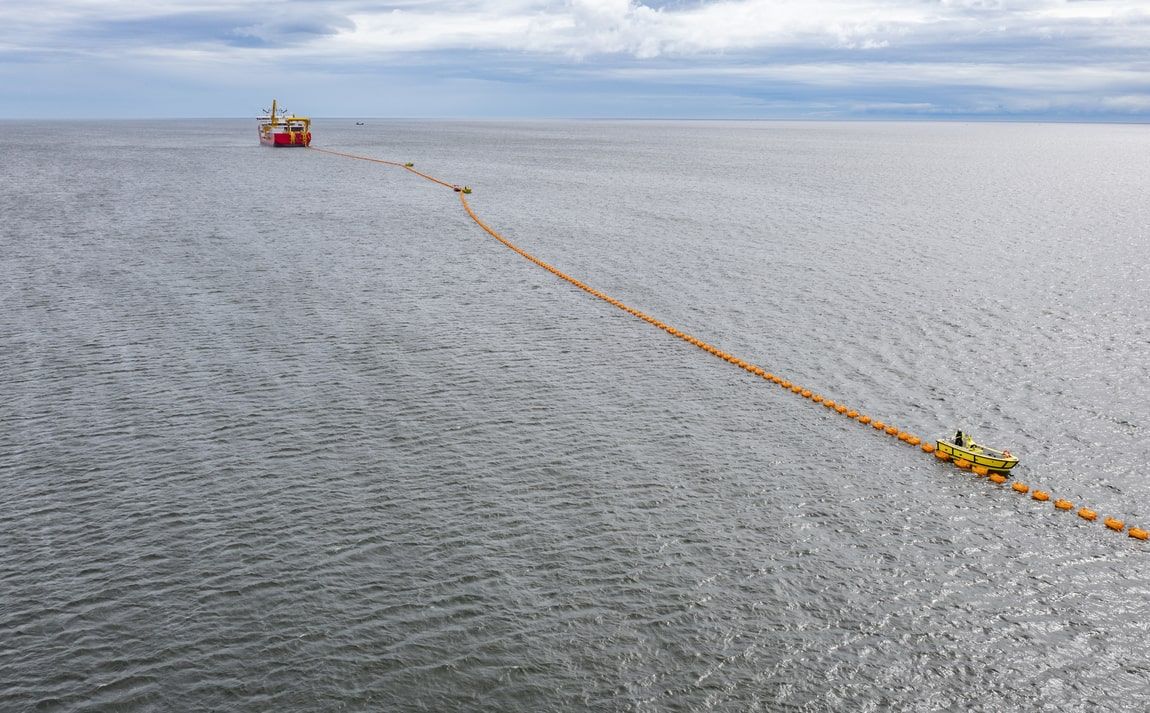This content is protected by copyright and may not be reused. If you want to cooperate with us and would like to reuse some of our content, please contact: editors@pv-magazine.com.
Is the EuroAsia Interconnector still alive?

Image: Nexans
pv magazine has learned that EuroAsia Interconnector Ltd, the Cyprus-based company that is the project’s promoter, will close down by the end of the year.
The news follow a joint press release published on 6th October by the EuroAsia Interconnector Ltd and Greece’s electricity transmission system operator, announcing the designation of the Greek operator as the new promoter of the interconnection project.
The press release said that the EuroAsia Interconnector Ltd and Greece’s Independent Power Transmission Operator (IPTO) “will work closely together so that the smooth transition to the new project promoter of the electricity interconnection of Greece, Cyprus and Israel is rapid as required by the project implementation timeframe and anticipated by the governments and the European Commission.”
The press release presents this as a good development adding that IPTO’s assumption of the new role “ensures the technical and financial adequacy of the project and lays the foundations for its timely completion.”
The EuroAsia cable is set to have a 2 GW capacity, lay in the Mediterranean Sea at a maximum depth of about 2,700 meters and run for about 1,500 km making it the world’s longest underwater power cable. It is branded as the eastern Mediterranean’s “electricity highway”.
The first chunk of the project linking mainland Greece to Crete, Greece’s largest island, is partly operational since 2021. However, this is set to expand adding a second, larger power cable alongside the first one. The construction of the second cable from mainland Greece to Crete is in a mature phase with a completion timeframe of 2024.
In October 2022, the second segment of the project, linking Crete to Cyprus, was also inaugurated although construction hasn’t started yet. This part of the interconnection has secured €657 million of state funding by the European Commission and an additional €100 million funding by the Cypriot Government, coming from the country’s national recovery and resilience plan, which in turn comprises part of the European block’s post-pandemic recovery plan. Yet, the total cost for this segment of the interconnection has been estimated at €1.58 billion.
This is where the biggest problem currently is. The European Investment Bank's (EIB) refused in August to approve a loan for the EuroAsia Interconnector project raising concerns whether the project can attract the backing of private investors.
The EIB's assessment has indeed praised the project arguing it can lead to potential savings of about €300 million annually on electricity bills for consumers of Greece and Cyprus by linking the two countries’ grids; and that the economic gains from the project might surpass its construction and operation costs. However, the bank has also suggested an alternative solution and this is energy storage.
EIB’s assessment sparked a debate, with the EuroAsia Interconnector Ltd arguing that EIB’s energy storage scenario for Cyprus, envisioning the installation of 1350 MW of battery capacity lasting four hours, is flawed for various reasons. Such reasons include the life of the batteries, which “is 15 years compared to 40/50 years which is the life of the electricity interconnector”; the bank’s assessment did not consider the degradation factor of the batteries which is usually 2.6% of the time; and that “in the event of a serious breakdown or blackout, the batteries can supply energy to the Cyprus electrical system for only four hours, and that, if they are fully charged at that particular moment,” said EuroAsia Interconnector Ltd.
Last but not least in the list of concerns about the development of the project is the current turbulence in the Middle East and specifically the recent terrorist attack on Israel’s citizens and the country’s reaction to it. The prospect of a long war in the region might decrease Israel’s appetite for the third segment of the electricity interconnector, connecting Israel to Cyprus.
Nevertheless, the EuroAsia Interconnector remains in the list of Europe’s projects of common interest (PCI) and the geopolitical reasons for its development remain it tact too. The project will end the power isolation of Cyprus and Israel, allowing them to import green energy from Greece. Greece is at present covering half of its annual electricity consumption via domestic renewable energy generators and its goal is to speed up its green energy transition, exporting low carbon energy to its neighbours. The European Union too wants its grid infrastructure to connect to neighbouring continents. These reasons alone might be enough to win over alternative business propositions such as energy storage. Commercial investors are still thinking of it.


2 comments
By submitting this form you agree to pv magazine using your data for the purposes of publishing your comment.
Your personal data will only be disclosed or otherwise transmitted to third parties for the purposes of spam filtering or if this is necessary for technical maintenance of the website. Any other transfer to third parties will not take place unless this is justified on the basis of applicable data protection regulations or if pv magazine is legally obliged to do so.
You may revoke this consent at any time with effect for the future, in which case your personal data will be deleted immediately. Otherwise, your data will be deleted if pv magazine has processed your request or the purpose of data storage is fulfilled.
Further information on data privacy can be found in our Data Protection Policy.